By Cristinia Liberati, Grants Project Manager, Equal Exchange
I came away from a recent visit to our cacao partner CONACADO with a feeling of tremendous appreciation for the way that co-operative has promoted women in roles that traditionally are assigned to men. I have even more appreciation for the strong women who have taken opportunities for leadership and have excelled, despite the challenges. According to the organization Farming First, “female farmers receive only 5% of all agricultural extension services from 97 countries, [and] only 15% of the world’s extension agents are women.”
Glenys Rosario is one of CONACADO’s finest extension agents. She leads a team of her peers, and is now in charge of several development projects at the co-operative related to organic productivity. During our collaborative USAID Co-operative Development Program, Glenys worked with farmer Gregorio Acosta to renovate his cacao farm. When Gregorio fell ill, his daughter Miguelina Acosta Morillo took charge of the farm and learned as much as she could from the extensionists to carry on the work.

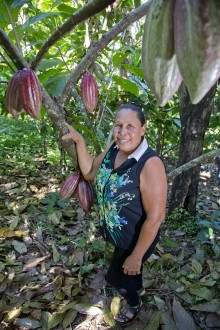
Left: Glenys removes a diseased cacao pod from the tree
Right: Miguelina stands next to a healthy cacao tree.
As it happens, Glenys’ sister Enriqueta Rosario is also an extension agent at CONACADO. In this photo (on the left), she is learning how to use a pump system for irrigation, belonging to farmer Joselinda Manueles from COMSA co-operative in Honduras. The two met when we hosted a Productivity Exchange for cacao and coffee producers in Honduras in 2016. Joselinda is an incredible entrepreneur, and has her own line of roasted coffee that she sells locally.
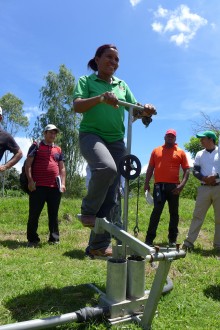
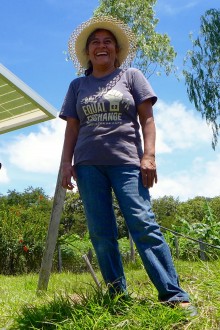
Left: Enriqueta, like her sister, is one of CONACADO’s agricultural extension agents
Right: Joselinda Manueles on her farm in Honduras
All of the hard work these farmers and the extensionists do in the field produces an excellent raw product, but what happens from there? In the case of CONCADO, the cacao is harvested and delivered to post-harvest processing facilities called Bloques. Each bloque handles the raw product of about 1,000 farmers. It must be fermented, dried, packed and warehoused until it is exported. This process requires an eye for detail and there is no one more qualified than Rhina Campos. She oversees all of these processes at Bloque #9. One of my favorite memories of Rhina is when she approached me one day, excited that she had solved a mystery. The chocolate tasting panel at Equal Exchange (yes, that is a real thing) found an odd flavor note in a batch of product and reported it back to the co-operative. It was something earthy and pungent (don’t worry, we rejected the sample!). Rhina started an investigation and found the source of the problem. She then launched an education campaign with the farmers to prevent it from happening again in the future.
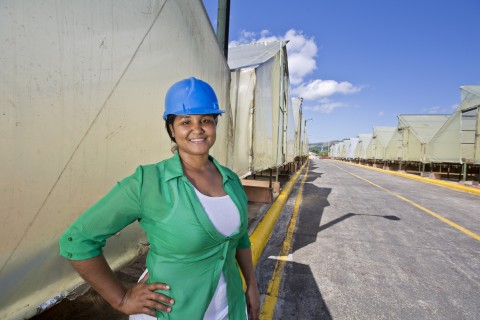
Above: Rhina Campos in front of the cacao drying tunnels at the post-harvest processing center
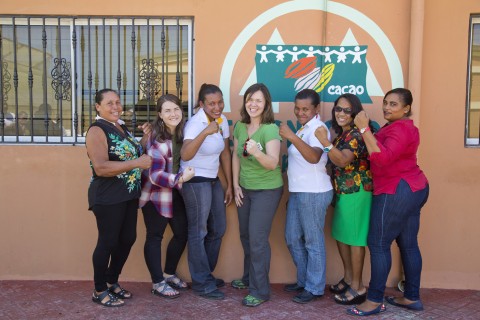
Below: Miguelina, Julia Baumgartner (Equal Exchange Grant Projects Consultant), Glenys, Cristina Liberati (Equal Exchange Grant Projects Manager), Enriqueta, Ana Alvarez, and Enemencia Bautista.
Heres to all the fierce women of CANOCADO!
